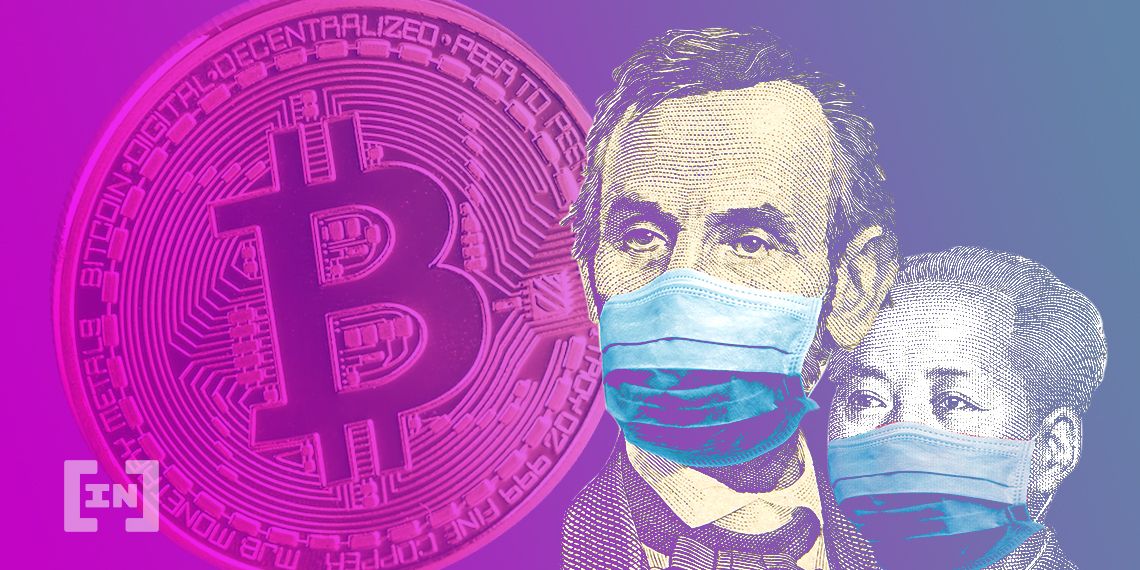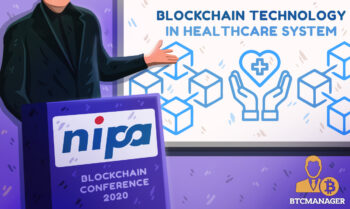2021-2-21 17:32 |
We spoke with the Solve.Care CEO about protecting your genetic data and ensuring that forensic evidence is used properly.
Protecting your health dataA major obstacle to providing smooth healthcare processes in the United States is that of privacy and mistakes. In the year 2000, the US Institutes of Medicine released a landmark report called “To Err is Human: Building a Safer Health System.” In the report, researchers found that as many as 98,000 people die annually due to healthcare errors.
As the title of the report suggests, people can make mistakes. With the reliability and immutability of blockchain technology, a future where computers can catch errors and streamline work may be in store.
Likewise, new genetic data is becoming available on the internet, and the implications are not yet known. This is another reason healthcare on blockchain is such a fast growing industry. There are even COVID passports on blockchain. New blockchain breakthroughs in healthcare could affect everyone.
Solve.Care CEO Pradeep Goel has been in healthcare a long time. After stints as an executive at healthcare facilities and insurance companies, Goel has turned his attention to healthcare infrastructures that live on the blockchain. The Solve.Care project uses the power and security of the blockchain to try and solve a number of problems in healthcare.
BeInCrypto (BIC) sat down with Goel to discuss some ways in which blockchain technology could improve healthcare experiences and reduce errors once it is adopted.
Wrongfully convictedBeInCrypto (BIC): According to the Innocence Project, falsified forensic and medical documents have led to 24% of all wrongful convictions. How can blockchain resolve such an issue by bringing more transparency into a lab staff’s work and data management?
Pradeep Goel (PG): The best preventative measure against falsifying test results in medical labs is having greater oversight. Blockchain provides a solution through its infinite and immutable data ledger that is easily auditable. Blockchain technology provides conditions for strict record-keeping, along with transparency and security. Thus, allowing for easy oversight of data for staff to pinpoint where in the chain there may be a discrepancy or issue with data management.
BIC: How have law enforcement agencies, forensic labs, and medical companies working with genetic information demonstrated interest in blockchain deployment?
PG: There are many potential use cases of blockchain technology in law enforcement in the US. In particular, the case of evidence verification. Having an immutable ledger allows them to verify if the evidence is in fact legitimate. This exact system is already used in labs across the industry, specifically labs that engage in consumer genetic testing. Many biotech companies are now starting to move towards using blockchain technology to allow secure DNA data exchanges between individuals.
Owning your DNA dataBIC: Some consumers are concerned about getting their DNA analyzed because the data could be stolen or misused. Do these technologies help prevent that?
PG: Traditionally, consumer genetic testing services receive your genetic data along with your personal data. But when using blockchain technology, the DNA is connected to a digital wallet which allows for more encrypted and anonymous transactions, thus protecting your privacy while also having more control over what happens to your data and who has access.
BIC: The US Pentagon warned military personnel not to use at-home genetic testing kits. Also, these at-home kit companies do not protect genetic information as well as consumers think, and law enforcement and courts have pressured the companies to release data. How can consumers protect their genetic information?
PG: Data stored on the blockchain is distributed across different independent places. Therefore, changing or removing data becomes incredibly difficult and the risk of losing this information is significantly reduced.
Utilizing blockchain protects from losses or unauthorized manipulation of data. The users’ control over the data is achieved primarily through granting users the right to take their data with them or to omit if they please.
Blockchain allows for the anonymization of access to data, adding another layer of protection. It is the obligation of the organizations who collect and store genetic data to ensure they have full consent of their users. Users need to be given full autonomy over their data and informed of the entire process of data collection, storage and sharing to third parties.
What about data leaks and hacks?Together with anonymization and proper encryption, it gives a solid building block for the construction of secure walls that are harder for hackers to break through.
BIC: Electronic health records have transformed healthcare and created the field of big data. Some projections say that there were about 2,134 exabytes (1 exabyte= 1 billion gigabytes) generated in 2020 globally. Will blockchain be able to handle this capacity?
PG: As the world is becoming more digitized, the management of large amounts of data is becoming the norm. Due to the cost of memory and storage space decreasing as technology becomes cheaper and more accessible, the size of data on the blockchain is less of an issue. So, as technology progresses, the handling and usage of data becomes more efficient too.
BIC: We thank Pradeep Goel for his time.
The post Verifying Your Health: Solve.Care’s Pradeep Goel on Genetic Privacy appeared first on BeInCrypto.
origin »Bitcoin price in Telegram @btc_price_every_hour
Health Care Chain (HCC) на Currencies.ru
|
|





